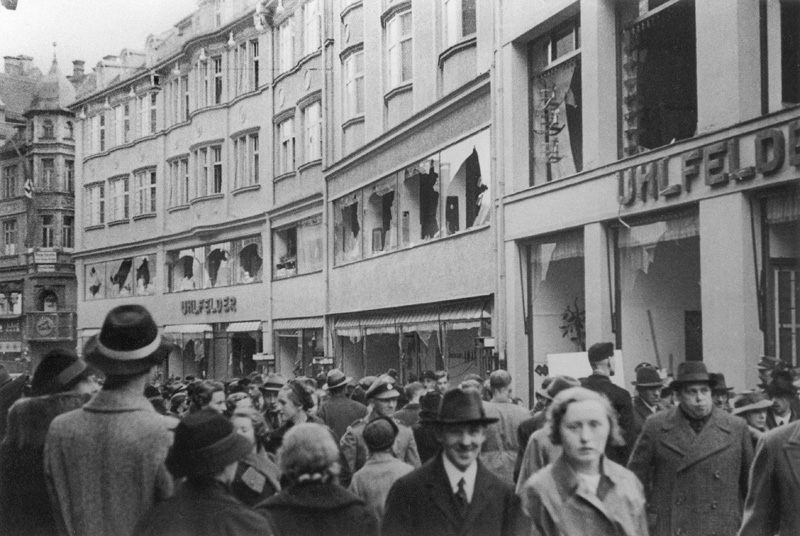Das breit gefächerte Warenangebot, die attraktive Präsentation in modernen Geschäftsräumen und die kundenorientierte Preispolitik des 1878 von Heinrich Uhlfelder gegründeten Handelsgeschäfts für Haushalts- und Galanteriewaren kamen bei den Münchner und auswärtigen Kunden gut an. In den 1920er-Jahren expandierte das im Rosenthal gelegene Warenhaus mit einer Verkaufsfläche von rund 7000 Quadratmetern zum zweitgrößten in München hinter Hermann Tietz. Im Jahr 1928 beschäftigte es ca. 500, 1930/31 bereits etwa 1000 Mitarbeiter*innen. Der Einbau einer Rolltreppe im Jahr 1931 wurde Stadtgespräch und zog Kund*innen von nah und fern an.
Den Nationalsozialisten, die den Kampf gegen Warenhäuser in ihrem 25-Punkte-Programm von 1920 festgeschrieben hatten, waren das Kaufhaus Uhlfelder und ihre jüdischen Eigentümer*innen ein Dorn im Auge. Unmittelbar nach der Machtübernahme wurde Max Uhlfelder, der die Firma seit 1928 zusammen mit seiner Schwester Margaretha Mayer führte, von einem Studenten festgesetzt und misshandelt. In der Folgezeit war das Kaufhaus zahlreichen Repressionen, Boykotten und Gewalttätigkeiten ausgesetzt. 1933, 1935 und im Sommer 1938 bemühte sich Max Uhlfelder vergeblich, das Geschäft zu verkaufen. Während des Pogroms in der Nacht vom 9. auf 10.11.1938 wurden das Kaufhaus stark verwüstet, die Waren geplündert oder vernichtet. Auch die Rolltreppe wurde mit Brechstangen zerstört. Marodierende HJ-Anhänger suchten Max Uhlfelder in seiner Privatwohnung heim und pressten ihm eine ‚Sühneleistung‘ von 5000 RM ab. Tags darauf brachte man ihn gemeinsam mit seinem Sohn Harry in das KZ Dachau. Das Kaufhaus wurde liquidiert.
Die Familie von Max Uhlfelder floh im Juli 1939 über die Schweiz nach Indien und wanderte später in die USA aus. Am 25.5.1940 erfolgte die Ausbürgerung, das Familienvermögen fiel damit an das Reich. Margaretha Mayer wurde zusammen mit ihrem Mann am 20.11.1941 mit dem ersten Deportationszug aus München nach Kaunas deportiert und dort fünf Tage später bei den Massenerschießungen ermordet.
Einen Großteil der Liegenschaften der Fa. Uhlfelder erwarb 1943 die Löwenbräu AG. Das Haus am Jakobsplatz 3 ging in den Besitz der Stadt München über und wurde dem Historischen Museum der Stadt einverleibt. Die Gebäude im Rosental wurden im April 1944 durch Bombenangriffe stark zerstört.
Nach Kriegsende stellte Max Uhlfelder noch von den USA aus zahlreiche Anträge auf Wiedergutmachung und Entschädigung, ehe er 1953 wieder nach München zurückkehrte. Zwar erhielt Uhlfelder diverse Entschädigungsleistungen und konnte die Rückerstattung der ehemals im Familienbesitz befindlichen Grundstücke erwirken; der geplante Wiederaufbau des Geschäfts gelang aber nicht mehr.


